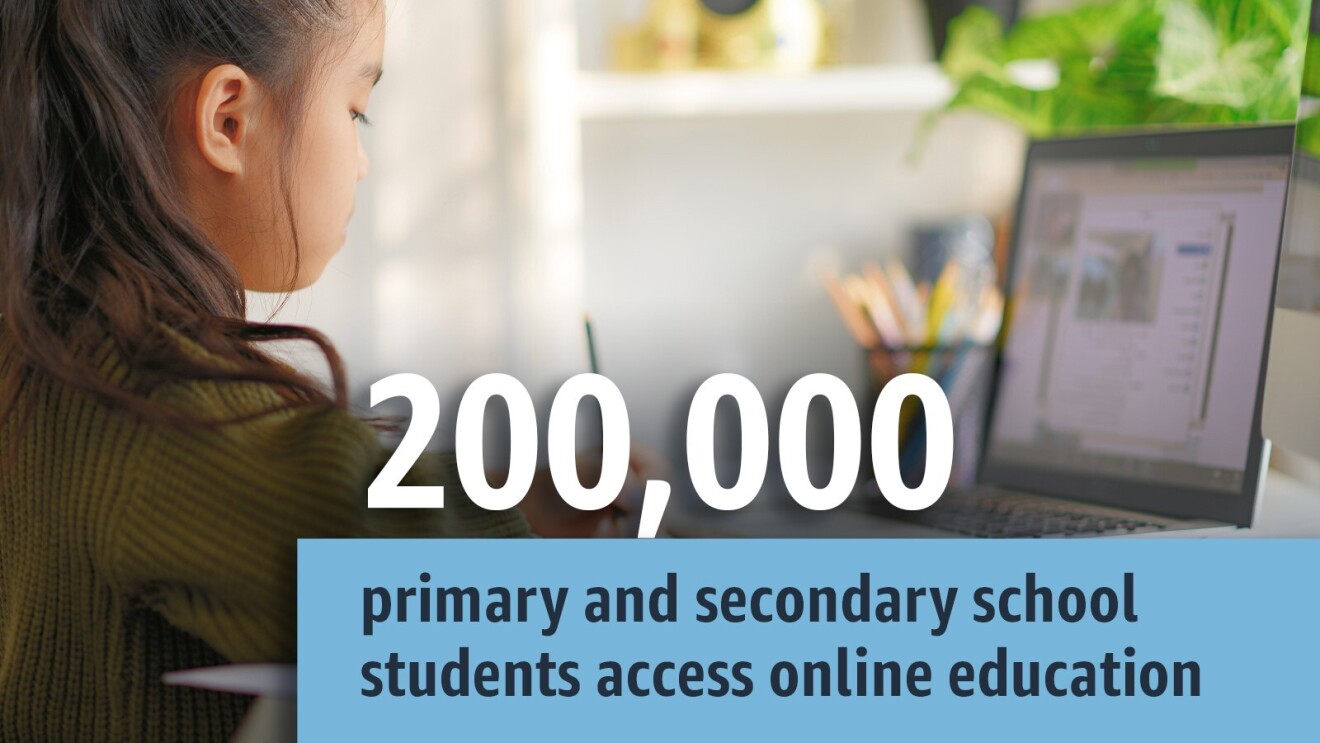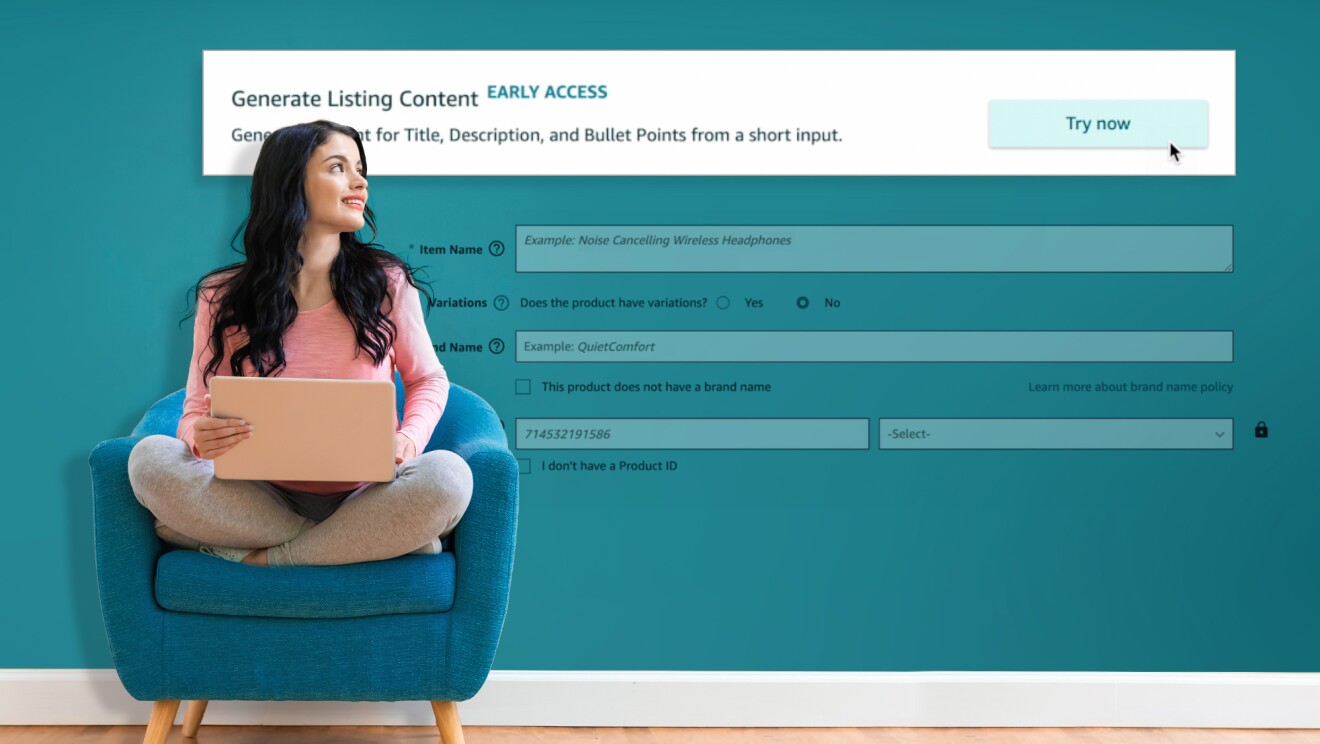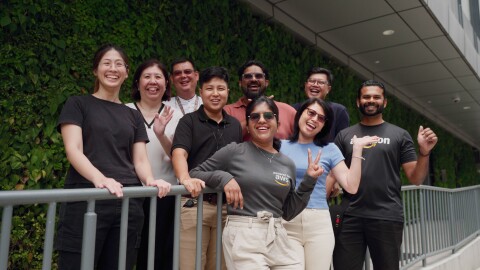Micro, small, and medium-sized enterprises (MSMEs) are often unsung heroes of innovation, accounting for 99% of all firms, supporting 65% of jobs, and contributing about 48% of gross domestic product in Singapore. These nimble organizations with fewer than 250 employees often position themselves at the forefront of experimentation with cloud-based technologies, such as artificial intelligence (AI) and machine learning (ML).
AWS's “Realising a Cloud-enabled Economy in Singapore: How Cloud Drives Economic and Societal Impact Through Micro, Small, and Medium-Sized Businesses” report, conducted in collaboration with Accenture, examines how businesses are addressing societal challenges as they transition to the cloud. The topline results reveal MSMEs in the healthcare and education sectors in Singapore are expected to drive S$650 million in annual productivity gains and support 100,000 jobs by 2030. That is double the number of people who are working at cloud-enabled MSMEs currently, across healthcare and education sectors.
Here are five highlights from the report:
1. AI is driving societal impact globally
Of the businesses surveyed, 78% identified AI, including generative AI, natural language processing (NLP), and ML as the technologies likely to drive the most societal impact by 2030. Businesses can use generative AI in numerous ways, such as assisting medical professionals in analysing patient data and test results, or helping educators review curricula and education materials to produce better exam questions.
Singapore-based edtech startup NoodleFactory.AI has developed Walter+, a generative AI teaching assistant leveraging large language models, powered by AWS. NoodleFactory.AI is democratizing accessibility of generative AI technology to educators, who can now instruct AI teaching assistants to do the heavy lifting in constructing tutoring resources.
This AI-assisted educator-curated approach enables educators to streamline workflows, take control of their time through task automation, and focus on the strategic task of curating educational content. For students, Walter+ addresses the pressing challenge of making personalized one-on-one tutoring accessible, affordable and available on-demand 24/7, providing quality education for all students. This has led to over 91% student engagement, 40-50% improvement in scores, and more than 100 hours of educator time-savings, freeing teachers to focus on more value-added interactions such as personal development, fostering collaborative engagements among students, and encouraging teamwork and problem-solving.
2. Healthcare value is unlocked through better telehealth

By 2030, cloud-enabled MSMEs providing healthcare solutions in Singapore are expected to unlock S$290 million in annual productivity benefits and support six million telehealth consultations per year. That is a 100% increase from three million telehealth consultations currently.
Tetsuyu Healthcare is a Singapore-based healthtech startup that provides community care management solutions and helps care providers manage patient information, conduct administrative tasks, and engage in telehealth consultations. Using AWS cloud hosting and content delivery services, the startup has been able to scale its healthcare software, CARES, locally and internationally, supporting more than 3,000 healthcare practitioners who collectively care for 12,000 patients in 60 localities across Singapore and Hong Kong.
“Community care can be so fragmented, highly localized, and manual, requiring service providers to engage in costly administration and limiting their ability to scale and focus on serving more patients. Manual administration also makes record-keeping and communication between providers challenging, leading to patients not receiving continuity of care,” said Li Lian Ng, co-founder and director at Tetsuyu Healthcare.
“With AWS, we’re able to scale CARES to thousands of care providers across geographies to help community care providers reduce reliance on paper-heavy processes and integrate seamlessly with existing record-keeping systems from doctors, patients, and carers. We developed the CARE4WOUNDS AI application on AWS that helps practitioners measure and analyze wounds on a mobile device. The cloud-based application can measure, assess, and securely upload data on a wound to electronic medical records under 30 seconds, reducing human error and saving time while enabling earlier intervention. AWS Cloud underpins the CARES application and CARES4WOUNDS AI algorithms, and has helped Tetsuyu Healthcare expand our services to help more patients access quality care.”
3. Education services are more accessible with cloud computing
By 2030, 200,000 primary and secondary students and one million adults in Singapore are expected to access online education via cloud-enabled MSMEs, unlocking S$360 million in annual productivity benefits. With cloud computing applications, especially those powered by AI, education curricula become more engaging, personalised, and easier to access for students of all ages and stages.
For example, Serious Games Asia is a Singapore-based startup that provides immersive and realistic virtual training scenarios through the cloud to help healthcare professionals develop occupational skills. Today, Serious Games Asia’s virtual training programs are helping to train over 3,000 nurses annually—about 14% of the healthcare workforce in Singapore.

4. Cloud adoption is still in its early days
The report shows that currently, 64% of businesses in Singapore adopt at least a basic level of cloud technology like web-based email services or cloud-based storage solutions. But there is still a huge opportunity for them to deepen and broaden cloud adoption in order to fully realize the potential of cloud technologies, by leveraging more advanced technologies supported by the cloud such as AI, including generative AI, and ML.
5. More collaboration and education are needed to accelerate innovation
The report reveals that cybersecurity, organizational culture, access to digital infrastructure, and technology skills are the primary barriers to cloud adoption for MSMEs. To address these challenges and realise the potential of a cloud-enabled economy, even more coordination between governments, educators, and industries is needed.
Since 2012, the US-ASEAN Business Council—through its charitable arm, the US-ASEAN Business Council Institute—has been focused on advancing social and economic development in Singapore and in the broader ASEAN region, supporting more than 37,000 entrepreneurs.
“The US-ASEAN Business Council is deeply committed to helping ASEAN—including Singapore—small businesses become more competitive, and scale their business on a regional and global stage through our SME Program and ASEAN SME Academy ,” said Margaret Hanson-Muse, president of the US-ASEAN Business Council Institute. “The report serves as further confirmation that there is much scope for MSMEs' productivity, through cloud-enabled technologies like AI and ML, to improve customer service experiences. We look forward to AWS’s continued support as our SME Academy Training Partner, to support MSMEs growth in the digital economy.”
In June 2023, IMDA and AWS launched a Joint Innovation Centre, a first of its kind in Southeast Asia, to match corporates to startups to spur innovation. Startups will have access to tech advisory for cloud deployment, and an independent and secured sandbox environment to conduct proof-of-concept projects with customers and prospects from both public and commercial sectors in Singapore.
AWS offers programs tailored to the diverse needs of MSMEs that are at different stages of their digitization journey. For early-stage startups, they can leverage AWS Activate to grow and scale their business. Since 2019, the program has provided more than US$2 billion in AWS credits to help startups manage costs, get technical expertise, and access training and business mentorship.
For small businesses looking to kickstart their cloud journey, the AWS Lift program provides small businesses with a starter pack of cloud credits of up to US$83,500 over 12 months, resources, and support from AWS Partners, to help them start digitizing in the cloud.
The report covers 12 countries globally, including Australia, Brazil, Canada, France, Indonesia, India, Japan, Korea, New Zealand, Singapore, United Kingdom, and the United States, and uses a combination of publicly available datasets from the OECD, the World Bank, the Conference Board Total Economy Database, market-sizing techniques, and survey analyses.
If you are interested to learn more about the potential benefits MSMEs can contribute to economies and societies, read the full report.














